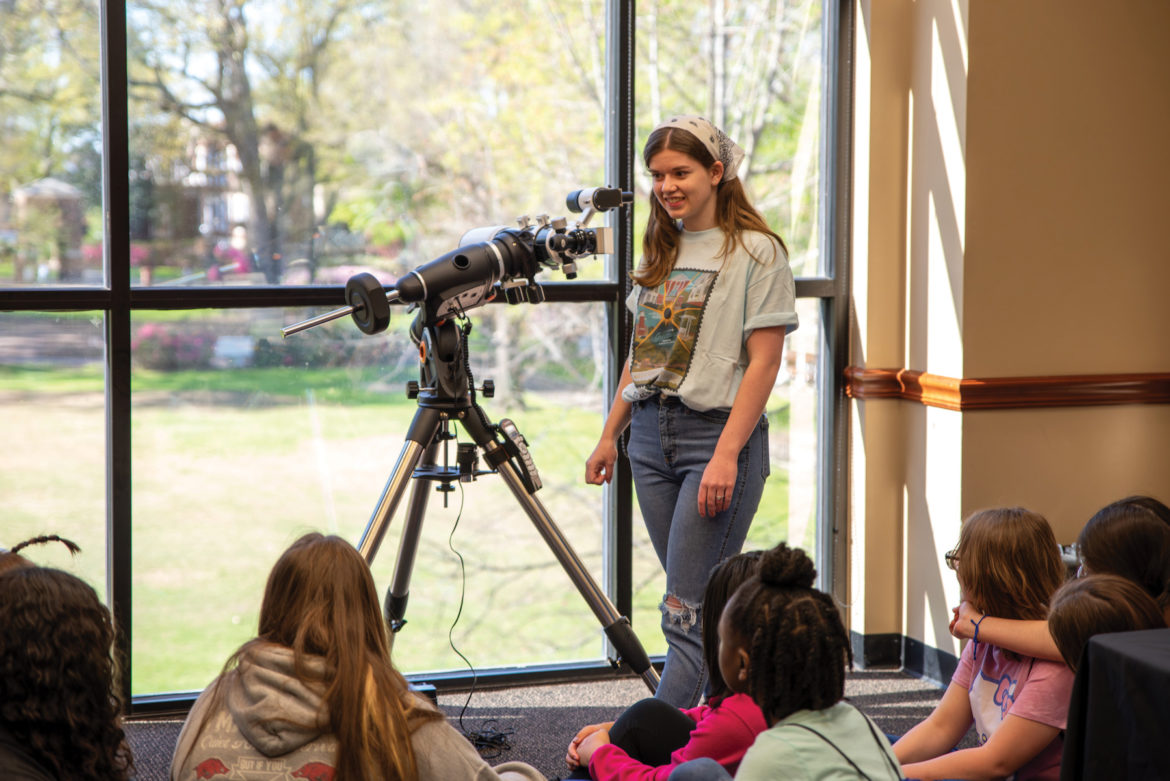Written by Bailey Coffman // Photo by Briley Kemper
Harding University’s solar eclipse ambassadors worked hard to prepare for the solar eclipse earlier this week, as Searcy was in the path of totality April 8. Dr. Cindy White, professor and chair of the Chemistry and Biochemistry Department, expressed pride in her students’ dedication.
“They have been preparing for months now, and they have done so much work,” White said. “They were huge in putting on NASA Day, as it was all the students that were running all the stations and doing all the activities and the teaching and learning that was going on.”
Over 1,300 middle school students from surrounding county schools participated in NASA Day, a series of events hosted by solar eclipse ambassadors on Harding’s campus Friday, April 5. Freshman Raquel Webb spoke to her participation in the events of NASA Day and her role on the day of the eclipse.
“Dr. White sent out an email to chemistry and biology majors about the job,” Webb said. “I applied, and we’ve just been preparing and planning for NASA Day. My station was building bottle rockets, and on Monday for the solar eclipse we’re going to be handing out solar eclipse glasses and galaxy-themed foods.”
Sophomore Katherine Hewitt, another solar eclipse ambassador, shared the importance of engaging with local schools in collaboration with such a monumental event.
“Each group of kids came for two hours, they got to see a telescope, do astronaut training and watch a movie in a planetarium,” Hewitt said. “Lots of their questions caused me to wonder the impact that this would make on their future degrees or jobs. The events of NASA Day were neat because we were able to partner with the kids’ teachers in explaining to them the stations we had planned, encouraging the kids’ excitement about space and the eclipse.”
The solar eclipse ambassadors, supported by the Arkansas Space Grant Consortium and endorsed by NASA, were instrumental in organizing educational activities and events on campus for the day of the eclipse. Hewitt emphasized the collaborative effort of varying scholastic disciplines, all coming together because of a mutual interest in the events of the eclipse.
“Overall, it’s been really cool to work alongside the professors and hear their passion for their subject and their ability to explain it to us,” Hewitt said. “I’ve also gotten to know a few other science majors, and it’s so cool to me that we all have different majors and skills to use in the events this weekend.”
